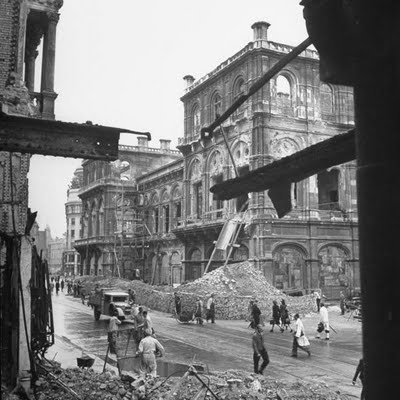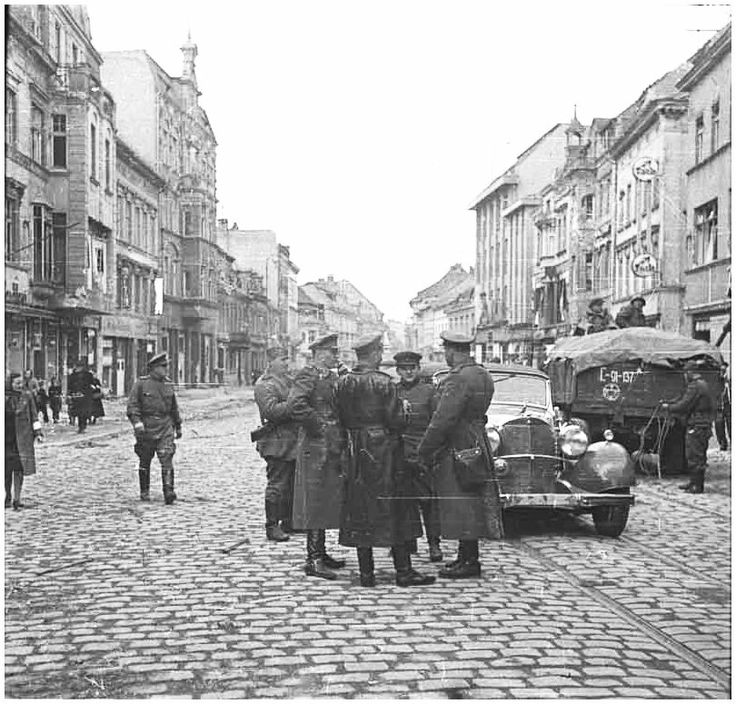From Richard Osborne’s biography Herbert von Karajan, on an event in war-torn Vienna as it was struggling back to life after a cold winter in the last stage of World War Two:
“Then the Russians arrived. For three weeks in April 1945,  Russian soldiery ran amok in and orgy of pillage and rape, before Stalin finally called his forces to order. The damage they did, psychological as well as physical, was awesome. It was clear that they were working to an agenda that had little to do with the war that was almost over. Thousands of ‘foreign’ residents, whose papers declared them to be citizens of the pre-First World War Austro-Hungarian Empire, were rounded up and deported to Russia. Many were never heard of again.
Russian soldiery ran amok in and orgy of pillage and rape, before Stalin finally called his forces to order. The damage they did, psychological as well as physical, was awesome. It was clear that they were working to an agenda that had little to do with the war that was almost over. Thousands of ‘foreign’ residents, whose papers declared them to be citizens of the pre-First World War Austro-Hungarian Empire, were rounded up and deported to Russia. Many were never heard of again.
“While the Russians terrorised the Viennese. they also demanded to be entertained by them. Towards the end of April 1945, the hastily appointed commissary head of the Opera, Alfred Jerger, was instructed, as gunpoint, to stage a May Day performance of Le nozze di Figaro in the largely undamaged Volksoper.
“‘It is not possible,’ stammered Jerger.
“‘Possible. Is,’ replied the gun-touting official.
“The performance duly took place.”
Source:
Richard Osborne, Herbert von Karajan: A Life in Music, Northeastern University Press, 1998, p. 193.

It’s Hauptstraße in Brandenburg an der Havel, Germany, not Vienna. See https://pastvu.com/p/412958 and https://goo.gl/maps/d3aDQPESyPo
Thanks, Boris.